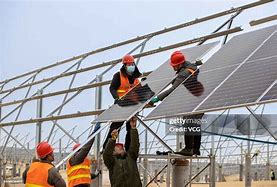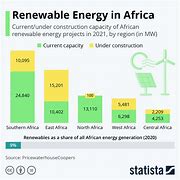Is it possible to bring true energy access to Africa by liberalizing its energy markets? This is the big question that many experts, including Sharon Rodah, are tackling. According to a report by the UN Sustainable Development Group, nearly half of Africa’s population still lacks access to electricity. This represents more than 80% of the global electricity access gap. It’s a staggering statistic that highlights the urgency of finding solutions.
In recent years, African countries have been opening up their energy sectors to private investment. This move aims to bridge the gap between government resources and the growing demand for electricity. However, the real challenge lies in whether liberalization alone can pave the way for universal energy access on the continent.
Africa boasts abundant energy resources, yet a significant portion of its population struggles with unreliable and unaffordable electricity. A substantial investment of around $110 billion was made in Africa’s energy sector in 2024, but this amount falls short when it comes to clean energy initiatives targeting universal access by 2030.
“As long as we don’t upgrade and expand our grid infrastructure, even investments in renewable projects may face limitations,”
said Sharon Rodah, a co-benefits specialist in Renewable Energy from Kenya.
The shift towards decentralized energy solutions offers hope by easing strain on national grids. Power traders and aggregators are emerging as key players bringing choice and flexibility into play. While there is momentum towards renewable projects, outdated grid connections pose challenges for their expansion across the region.
Rodah pointed out that
“Africa accounts for 83% of the global population without electricity access.”
Countries like Nigeria, Ethiopia, and the Democratic Republic of Congo contribute significantly to this deficit due to poor utility performance and insufficient funding for grid development.
Liberalization involves restructuring traditional systems by introducing competition through independent regulators and private sector involvement. The aim is to create responsive markets where participants can freely trade while consumers engage based on pricing signals.
Drawing lessons from successful liberalized markets worldwide like those in the UK and Australia can guide African nations as they navigate their own transformations. These experiences emphasize efficiency gains, innovation stimulation, transparency improvements in pricing structures along with operational relief for utilities.
In Africa specifically, various strategies have been employed such as market unbundling, regional integration through interconnections and power pools, private sector participation through independent power producers (IPPs), diversification via new trading mechanisms like auctions and Power Purchase Agreements (PPAs).
“The impact has been significant; Morocco achieved near-universal rural electrification through IPPs,”
shared Rodah enthusiastically about successful cases where off-grid investments expanded accessibility significantly in countries like Kenya too.
However promising these results may be – achieving universal access requires continuous commitment from governments alongside strong policy frameworks ensuring financial sustainability via Public-Private Partnerships (PPP) supporting state-owned utilities’ operations.
For genuine progress towards widespread electrification across Africa – ongoing political will coupled with robust institutional capacities will drive sustainable outcomes amid evolving market dynamics requiring adaptability at every step.
“Liberalization ought not only be seen as an event but rather a journey demanding unwavering dedication,”
stressed Rodah regarding sustained efforts needed for lasting impact.
In conclusion – structured liberating reforms hold promise if embraced systematically underpinning inclusive growth fostering true electrical connectivity throughout Africa’s diverse landscapes.
As reported by www.esi-africa.com
—
Source:
www.esi-africa.com









Leave feedback about this